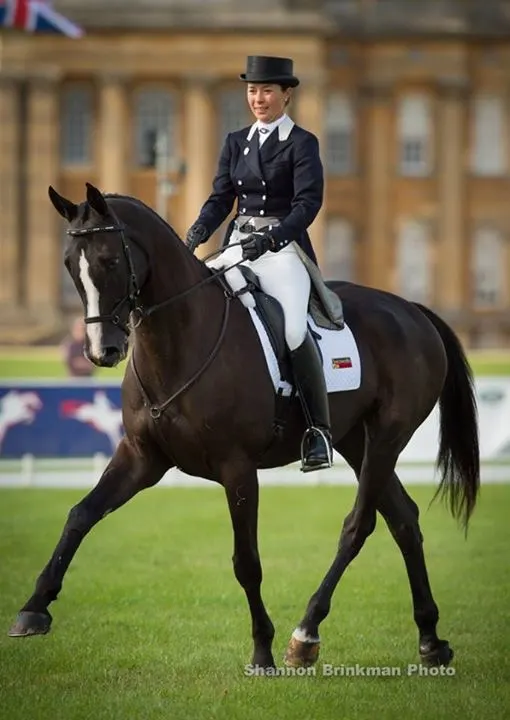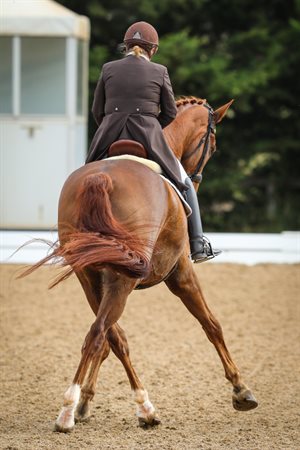In the world of equestrian sports, horseback riding stands out as a thrilling and challenging activity. But did you know that it goes beyond just pure enjoyment? Horseback riding has a profound influence on perseverance, teaching valuable lessons that extend far beyond the saddle. From building physical strength to developing resilience and determination, riders are faced with numerous obstacles that push them to never give up. In this article, we will explore the ways in which horseback riding can shape and strengthen one’s perseverance, both in and out of the arena. So saddle up and get ready to discover the remarkable impact of horseback riding on the human spirit.
Benefits of Horseback Riding
Improves Physical Fitness
Horseback riding is a fantastic activity for improving physical fitness. As you ride, you engage your entire body, from your core muscles to the muscles in your legs and arms. This helps to improve your strength, endurance, and flexibility. Additionally, riding burns calories and helps to build cardiovascular fitness, making it an excellent workout for those looking to stay in shape.
Enhances Coordination and Balance
One of the key benefits of horseback riding is the improvement in coordination and balance. When riding a horse, you need to maintain a balanced position, distribute your weight correctly, and coordinate your movements with the horse’s gait. This constant demand for balance and coordination helps to improve your overall motor skills, which can translate into improved performance in other sports and activities.
Develops Core Strength
Riding a horse requires a strong core, as you need to maintain a stable position while the horse is in motion. The core muscles, including the abdominal and back muscles, play a crucial role in maintaining balance and stability while riding. By regularly engaging these muscles during horseback riding, you can develop a strong and stable core, which can benefit your overall posture and stability in daily life.
Boosts Mental Health
Horseback riding has been shown to have significant benefits for mental health. Spending time with horses and being in nature can reduce stress and anxiety levels. The rhythmic motion of the horse can have a calming effect and help to clear the mind. Additionally, being around horses can provide a sense of companionship and connection, which can improve mood and overall well-being.
Enhances Emotional Regulation
Working with horses can also enhance emotional regulation skills. Horses are incredibly perceptive animals and can pick up on even the slightest changes in human emotion. By learning to regulate your own emotions while interacting with a horse, you can develop important skills in self-awareness, emotional control, and empathy. This can transfer to other areas of your life and improve your ability to navigate challenging situations.
Connection Between Horse and Rider
Building Trust and Bond
Building a strong bond and trust with your horse is essential in horseback riding. Horses are sensitive animals that respond to the energy and cues of their riders. By spending time with your horse, understanding their needs, and providing consistent care and training, you can build a deep bond based on trust and respect. This bond not only enhances the riding experience but also creates a partnership where horse and rider can excel together.
Nonverbal Communication
Horseback riding relies heavily on nonverbal communication between horse and rider. Horses communicate with body language, and riders must learn to read and interpret these cues. Similarly, riders communicate their intentions and commands through subtle body movements and rein aids. This nonverbal communication fosters a deeper connection and understanding between horse and rider, leading to more effective riding and a stronger partnership.
Empathy and Sensitivity
Working with horses requires empathy and sensitivity. Horses are highly sensitive to their environment and the emotions of those around them. Riders must learn to be aware of and respond to the needs of their horse. By developing empathy and sensitivity towards the horse’s physical and emotional well-being, riders can create a harmonious and mutually rewarding relationship with their horse.
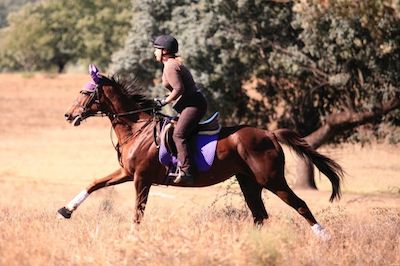
Challenges Faced in Horseback Riding
Learning to Control the Horse
One of the initial challenges in horseback riding is learning to control the horse. As a rider, you must learn to communicate your intentions effectively and develop the skills to guide the horse’s movements. This involves learning to use your posture, leg aids, and rein aids to direct the horse’s speed, direction, and transitions. Learning to control the horse requires practice, patience, and an understanding of the horse’s individual personality and responses.
Mastering Different Riding Styles
Horseback riding encompasses various disciplines and riding styles, each with its own set of techniques and skills. Whether it’s dressage, show jumping, or trail riding, each style requires specific training and mastery. Riders must be open to learning new techniques and adapting their riding style to the demands of different disciplines. Mastering different riding styles allows riders to explore their interests and challenge themselves to continuously improve their skills.
Facing Fear and Overcoming it
Horseback riding can be intimidating, especially for beginners. The sheer size and power of horses can trigger fear and anxiety in some riders. However, overcoming fear is an essential part of the riding journey. Riders must learn to manage their fear by building confidence through proper training, supportive instructors, and gradual exposure to challenging situations. By facing their fears and gradually pushing their comfort zones, riders can develop immense personal growth and resilience.
Dealing with Unexpected Situations
Horseback riding is an unpredictable activity, and riders must learn to deal with unexpected situations that may arise. Horses are living creatures with their own personalities, and they can react differently to various stimuli. Riders must be prepared to handle spooks, sudden movements, and other unexpected behaviors from their horses. This requires quick thinking, problem-solving skills, and the ability to remain calm under pressure.
Perseverance in Horseback Riding
Importance of Perseverance
Perseverance is a key quality in horseback riding. Progress in riding is not always linear, and riders will inevitably face challenges and setbacks. In order to improve, riders must stay committed, determined, and willing to put in the necessary effort and practice. Perseverance allows riders to push through difficulties, learn from their mistakes, and ultimately achieve their goals.
Overcoming Initial Difficulties
When starting horseback riding, beginners often face various difficulties. Mounting and dismounting can be intimidating, finding the correct balance and seat position requires practice, and learning to control the horse’s movements can be challenging. However, with perseverance and consistent practice, these initial difficulties can be overcome. Gradually, riders become more confident and comfortable in the saddle, making way for further progress.
Continuous Learning and Improvement
Horseback riding is a lifelong learning journey. No matter the level of expertise, there is always room for improvement and growth. Riders must remain open to learning new techniques, refining their skills, and seeking feedback from experienced riders and instructors. Continuous learning and improvement allow riders to reach new levels of mastery and deepen their understanding of horsemanship.
Patience during Training
Riding horses is a process that requires patience. Horses are sensitive animals that require time to understand and respond to the rider’s aids. Rushing the training process can lead to confusion and frustration for both horse and rider. Patience is necessary to establish a strong foundation, build trust, and allow the horse to progress at their own pace. Through patient training, riders can develop a solid partnership and achieve better long-term results.
Pushing Through Physical and Mental Barriers
Horseback riding can push riders out of their comfort zones, both physically and mentally. Riders may face physical challenges such as muscle soreness, fatigue, and physical limitations. Additionally, mental barriers such as self-doubt, fear, and lack of confidence can hinder progress. Perseverance is crucial in pushing through these barriers, as riders learn to trust their abilities, confront their limitations, and surpass their own expectations.
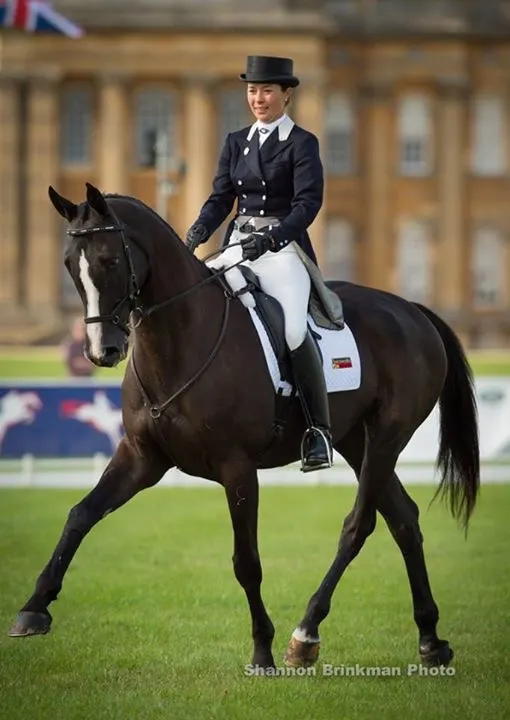
Building Confidence and Resilience
Achieving Goals and Milestones
Setting and achieving goals is an integral part of horseback riding. Whether it’s mastering a new riding technique, competing in a show, or simply improving overall riding skills, working towards goals provides a sense of purpose and direction. Each milestone reached, no matter how small, boosts confidence and motivates riders to continue challenging themselves.
Building Self-Esteem
Horseback riding has a profound impact on self-esteem. As riders develop new skills, overcome challenges, and build a strong bond with their horse, they gain a sense of accomplishment and self-worth. The ability to control and communicate with a powerful animal like a horse fosters a sense of empowerment and confidence that carries over into other aspects of life.
Developing Resilience
Horseback riding teaches riders to be resilient in the face of adversity. They learn to bounce back from setbacks, such as falling off a horse or facing a disappointing competition result. The unpredictable nature of horses means that riders must adapt to unexpected situations and persevere. This resilience cultivated through riding extends beyond the arena, helping riders navigate life’s challenges with greater strength and determination.
Learning from Setbacks and Failures
Setbacks and failures are inevitable in horseback riding, but they provide valuable learning opportunities. Riders must learn to accept and analyze their mistakes, identify areas for improvement, and find ways to overcome obstacles. By embracing failures as part of the learning process, riders become more resilient, self-aware, and better equipped to handle future challenges.
Lessons Learned from Horses
Respecting Boundaries
Horses have their own personal boundaries, and riders must learn to respect and navigate them. By understanding and respecting a horse’s space and comfort zones, riders develop a sense of empathy and communication that translates into their interactions with others. Respecting boundaries teaches riders the importance of establishing trust and creating a safe and harmonious environment.
Being Present and Mindful
Horses have an ability to ground riders in the present moment. When riding, it’s crucial to be fully present and focused on the horse’s movements and cues. This mindfulness not only enhances the riding experience but also carries over into daily life. Being present and mindful allows riders to let go of distractions, reduce stress, and maintain a calm and centered mindset.
Adapting to Different Personalities
Horses, like humans, have distinct personalities. The ability to adapt to different horse personalities is essential for successful horseback riding. Each horse has unique needs, preferences, and responses, and riders must adjust their approach accordingly. This flexibility in adapting to different personalities fosters versatility and adaptability, qualities that can benefit riders in various aspects of their lives.
Gaining Trust through Time and Effort
Building trust with a horse requires time, effort, and consistency. Horses are naturally cautious animals, and riders must earn their trust through gentle and patient interaction. The process of gaining a horse’s trust cultivates qualities such as patience, understanding, and perseverance. These qualities can then be applied to interpersonal relationships, as riders learn the importance of trust and the value of investing time and effort into building strong connections.
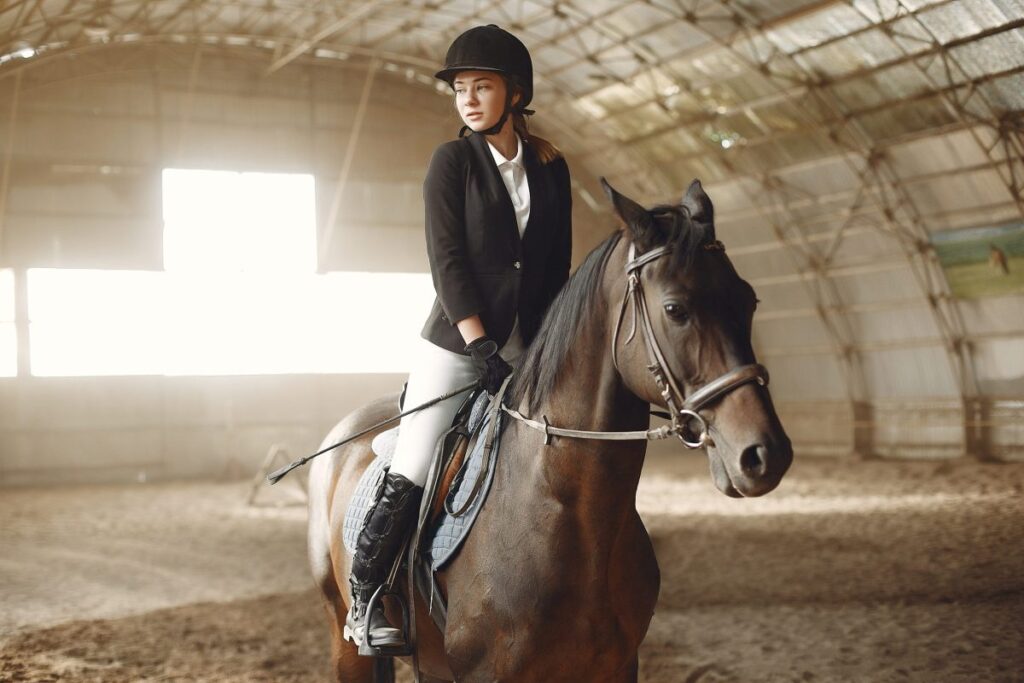
Horseback Riding as a Therapeutic Outlet
Equine-Assisted Therapy
Horseback riding has been widely recognized as a therapeutic outlet. Equine-assisted therapy involves the use of horses to promote physical, emotional, and mental well-being. The rhythmic motion of riding can provide sensory integration and improve coordination and motor skills for individuals with physical disabilities. Additionally, the presence of horses and the bond formed with them can have a calming and therapeutic effect on individuals with mental health issues.
Emotional Healing through Connection
Interacting with horses can be a powerful means of emotional healing. Horses have an intuitive ability to sense and respond to human emotions, offering support and empathy without judgment. Spending time with horses can provide a safe and nurturing environment for individuals to express and process their emotions, leading to emotional healing and personal growth.
Reducing Stress and Anxiety
Horseback riding offers a natural escape from the stresses of everyday life. Being in nature and engaging in physical activity can reduce levels of stress and anxiety. The rhythmic movement of the horse, combined with the serenity of the surroundings, provides a therapeutic experience that can help individuals unwind, relax, and find mental clarity.
Boosting Self-Confidence in Therapy
Participating in horseback riding as a therapeutic intervention can significantly boost self-confidence. Achieving small successes, such as mounting a horse or successfully navigating an obstacle, can create a sense of accomplishment and empowerment. The supportive environment provided by trained professionals in equine-assisted therapy further enhances self-confidence and encourages personal growth.
Horseback Riding Competitions and Perseverance
Preparing for Competitions
Competing in horseback riding requires careful preparation. Riders must dedicate time to practice their skills, refine their techniques, and develop strategies for each competition. Proper training, conditioning, and attention to detail are crucial in order to perform to the best of one’s abilities.
Dealing with Pressure and Nerves
Competing in horseback riding can be nerve-wracking, as riders often face pressure to perform well. Managing nerves and performing under pressure are essential skills for success in competitions. Riders must learn to channel their nerves into a positive and focused energy, allowing them to ride confidently and maintain their composure throughout the competition.
Handling Unexpected Challenges
Competitions often present unexpected challenges that riders must be prepared to face. Whether it’s navigating a difficult course, adapting to changing weather conditions, or dealing with equipment malfunctions, riders must stay calm and think on their feet. The ability to handle unexpected challenges with grace and composure is a testament to a rider’s perseverance and adaptability.
Learning from Defeats and Setbacks
Competitions can bring both victories and defeats. It’s essential for riders to learn from their defeats and setbacks, using them as opportunities for growth and improvement. Analyzing performance, seeking feedback from judges or coaches, and identifying areas for development can help riders bounce back stronger and more determined for future competitions.
Celebrating Victories and Achievements
Competing in horseback riding allows riders to celebrate their victories and achievements. From winning a ribbon or a trophy to achieving personal bests, each success should be celebrated and acknowledged. Celebrating victories not only boosts confidence and motivation but also provides a well-deserved sense of accomplishment and pride.
The Role of Horseback Riding Instructors
Guiding and Supporting Students
Horseback riding instructors play a vital role in guiding and supporting students on their riding journey. They provide valuable instruction, feedback, and guidance, helping riders develop proper riding techniques, improve their skills, and overcome challenges. A knowledgeable and supportive instructor is instrumental in fostering a positive learning environment and ensuring the safety and progress of their students.
Instilling Perseverance and Determination
Instructors have the opportunity to instill perseverance and determination in their students. By setting high standards, challenging students to reach their potential, and providing encouragement and support, instructors can help riders develop a strong work ethic, a growth mindset, and the motivation to persevere through difficulties. The lessons of resilience learned in the riding arena can have a positive impact on all aspects of a rider’s life.
Providing Proper Training and Techniques
Instructors are responsible for providing riders with proper training and techniques. This includes teaching fundamental riding skills, introducing advanced techniques, and ensuring that riders have a solid foundation to build upon. Instructors should prioritize safety and ensure that riders have a thorough understanding of horse care, riding equipment, and proper riding etiquette.
Motivating and Inspiring Riders
Instructors have the power to motivate and inspire their students. By setting achievable goals, providing positive reinforcement, and recognizing their students’ progress, instructors can ignite a passion for horseback riding and keep riders engaged and motivated. A supportive and encouraging instructor can make a significant impact on a rider’s confidence, growth, and love for the sport.
Horseback Riding and Personal Growth
Developing Discipline and Commitment
Horseback riding requires discipline and commitment. Riders must adhere to a consistent training schedule, maintain proper horse care practices, and prioritize their overall physical and mental well-being. Developing discipline and commitment in horseback riding translates into other areas of life, fostering responsibility, time management, and a strong work ethic.
Setting and Working Towards Goals
Goal setting is a crucial aspect of personal growth in horseback riding. Whether it’s achieving a specific riding level, participating in a competition, or mastering a difficult maneuver, setting goals provides direction and motivation. Riders learn to break down their goals into smaller, achievable steps and work towards them systematically. This process of goal setting and achieving instills in riders a sense of purpose and fulfillment.
Improving Time Management Skills
Horseback riding requires effective time management skills. Riders must balance their riding schedule with other commitments, such as school, work, and personal life. Organizing and prioritizing tasks, optimizing practice sessions, and efficiently managing time allow riders to make the most of their riding experience while maintaining a healthy work-life balance.
Enhancing Problem-Solving Abilities
Riding horses presents various problem-solving challenges. From adapting to the horse’s individual needs to troubleshooting technical issues during a ride, riders must think critically and find effective solutions. The ability to analyze situations, make quick decisions, and adapt to changing circumstances strengthens problem-solving abilities, providing valuable skills that extend beyond the arena.
Fostering a Positive Mindset
Horseback riding promotes a positive mindset. Riders learn to see failures as learning opportunities and setbacks as temporary obstacles. The focus on continuous improvement and the celebration of progress cultivates optimism and resilience. Maintaining a positive mindset not only enhances the riding experience but also contributes to overall well-being and personal growth.
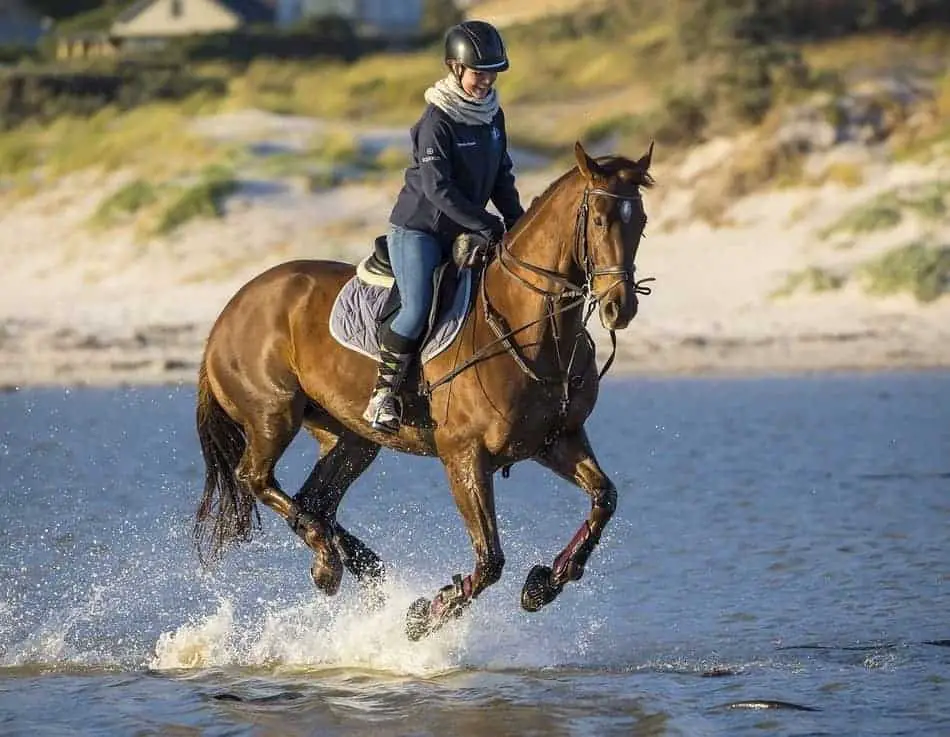
Conclusion
Horseback riding offers a multitude of benefits, from physical fitness and enhanced coordination to improved mental health and emotional regulation. The connection between horse and rider goes beyond communication; it builds trust, empathy, and sensitivity. Although horseback riding comes with challenges, perseverance is key in overcoming them and continually improving. The lessons learned from horses extend to respect, presence, adaptability, and patience. Horseback riding also serves as a therapeutic outlet, aiding in emotional healing, stress reduction, and self-confidence. Competing in horseback riding tests riders’ preparation, resilience, and ability to learn from both victories and defeats. The role of instructors is vital in guiding, supporting, and motivating riders on their journey. Horseback riding promotes personal growth, fostering discipline, goal setting, time management, problem-solving, and a positive mindset. Embracing the world of horseback riding can lead to a lifelong love for horses and a transformative journey of self-discovery.
